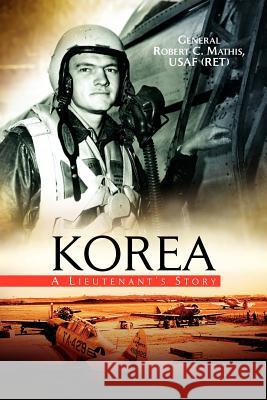Korea » książka
Korea
ISBN-13: 9781425705473 / Angielski / Miękka / 2006 / 164 str.
Korea
ISBN-13: 9781425705473 / Angielski / Miękka / 2006 / 164 str.
(netto: 75,77 VAT: 5%)
Najniższa cena z 30 dni: 79,34
ok. 16-18 dni roboczych.
Darmowa dostawa!
The drop off the cliff was only about 5 or 6 feet but I hit with a thud and lay momentarily on the ground. My mind was spinning over what had happened in the past few minutes. I had been shooting rather wildly in the dark, trying to stop the onslaught coming at us from the north. Just as I started to get up, someone kicked one of my feet, I heard a very loud explosion, very close to my ears, and some dirt splattered on the side of my head. There were a number of people around me speaking in what to me was completely unintelligible language. I felt no pain so I guessed that I was unhurt. I stayed still for a few moments as the people left the area I was in. I was suddenly alone in a small Korean farmyard that I had seen a number of times in the past two days. I tried to collect my thoughts since I needed to develop a plan if I were going to survive. I was somewhat stunned. My thoughts were a bit confused. I knew that there were many, many enemy soldiers all around me. And I knew that they would be trying to kill me. The war had become quite personal. I was sure that my team of forward air controllers had all been killed as we were run over by the apparently thousands of enemy soldiers attacking our front lines. My mind was now racing and I knew that I had to do something very soon or I would become a prisoner of war. That was something I had always told myself would never happen. I had never really been afraid of being shot. I figured whatever pain came would quickly go away. But captured? I had read accounts of people who had been captured, particularly by the North Koreans, and it really wasn't fun. And then there were those stories of friends who had been captured and then used for bayonet practice. Stories about the Bataan Death March in the Philippines just a few years before had convinced me that being captured, particularly by someone from an Asian culture, was an invitation to slow torture. I suppose that I was really not that brave. I quickly decided that if I were to go down, it would be fighting all the way. I still had my carbine and still had ammunition. Whatever came next, I would either go out in a blaze of glory or I would get back to my own troops. But where did this all start? This book is about a year in the life of a lieutenant in Korea in 1950-1951. I had been trained as a fighter pilot and I did indeed fly a number of missions as such. However, some of the most interesting times came when I was on the ground and with the infantry. I had been fairly well trained to do that as well. It doesn't make much difference whether you are a soldier, sailor, airman or marine, you are sometimes asked to fight and risk your life for your country. This just happens to be my story as a lieutenant. The Korean War is in a real sense the forgotten war. It appears in the memory as a strange interlude sandwiched between World War II and Viet Nam. For the great majority of Americans who did not experience the intense cold, the indescribable misery of the Korean people, north and south, or the horror of the devastation beyond description, the war remains a blank. We should remain eternally thankful that we Americans have not experienced anything like the terrible reality of two great armies moving like devouring locusts back and forth across our country. Our Civil War remains the only marker by which we could measure the hopelessness and suffering of the Korean War. I recall Korea vividly. While I had been in the Army (West Point) during World War II, this was my first combat experience. I could certainly put down the various statistics about the Korean War, and try to impress upon you how bad it was. This is not a story about statistics, however. I could tell you about what happened on that awesome very early morning of 25 June 1950 when the North Korean army leaped across the border between the North and South, with artillery firing and tanks moving rapidly southward. And some of that is ne











